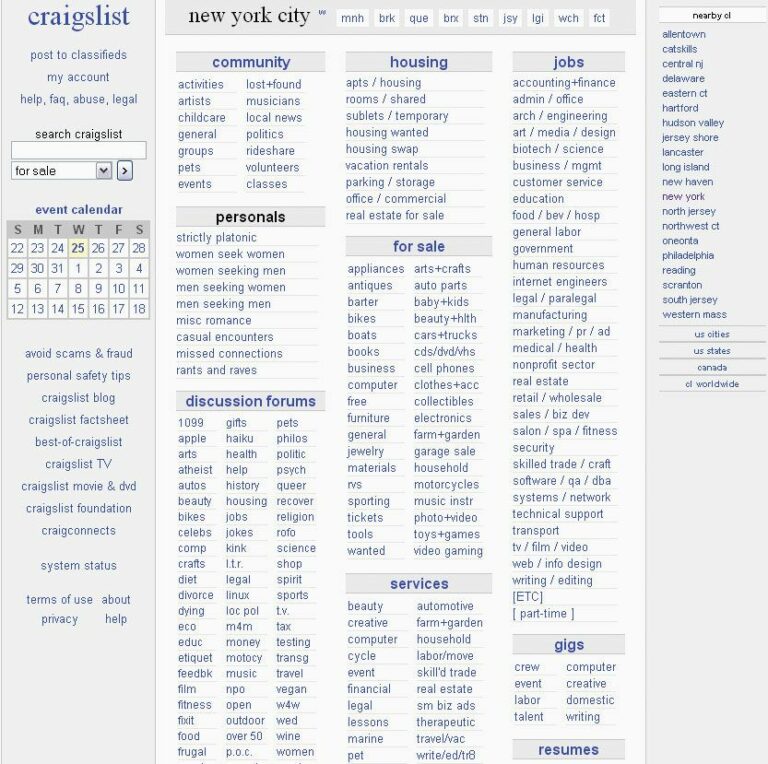U-Haul Rental Trucks Rates: A Comprehensive Guide to Understanding Your Moving Costs
U-Haul Rental Trucks Rates: A Comprehensive Guide to Understanding Your Moving Costs typestruckssale.com
Moving can be an exhilarating, yet often daunting, experience. One of the most critical components of a successful DIY move is securing the right transportation, and for countless individuals and families, U-Haul rental trucks are the go-to solution. However, navigating the intricacies of U-Haul rental trucks rates can sometimes feel like deciphering a complex puzzle. Understanding how U-Haul calculates its pricing is paramount to budgeting effectively, avoiding unexpected expenses, and ensuring a smooth transition to your new home.
This comprehensive guide aims to demystify U-Haul rental trucks rates, offering a detailed breakdown of their pricing model, exploring various factors that influence costs, and providing actionable insights to help you secure the best deal. Whether you’re moving across town or across the country, knowing the ins and outs of U-Haul’s rate structure will empower you to make informed decisions and manage your moving budget with confidence.
U-Haul Rental Trucks Rates: A Comprehensive Guide to Understanding Your Moving Costs
Understanding U-Haul’s Core Pricing Model
U-Haul’s approach to rental truck rates fundamentally differs based on the type of rental: local or one-way. This distinction is the cornerstone of their pricing and dictates how your total cost will be calculated.
Local Rentals: Base Rate Plus Mileage
For moves within the same metropolitan area, typically where the pick-up and drop-off locations are within a specific radius (often 50-100 miles apart), U-Haul employs a "base rate plus mileage" model.
- Base Rate: This is a fixed daily charge for the truck itself. It can range from as low as $19.95 for smaller trucks or vans to higher amounts for larger vehicles. This rate covers the use of the truck for a standard 24-hour period. It’s crucial to remember that this seemingly low initial price is just the starting point.
- Mileage Charge: In addition to the base rate, you will be charged per mile driven. The per-mile rate typically ranges from $0.69 to $1.29 or more, depending on the location, demand, and truck size. This mileage charge can accumulate quickly, so accurately estimating your total driving distance is vital for local moves.

This model allows for flexibility in shorter, more unpredictable local moves, where the exact distance might not be known until moving day. However, it requires careful monitoring of your odometer.
One-Way Rentals: Fixed Rate with Allotment
When you’re moving a significant distance and dropping the truck off at a different U-Haul location than where you picked it up, you’re engaging in a one-way rental. The U-Haul rental trucks rates for one-way moves are structured very differently:
- Fixed Rate: Instead of a daily base rate plus mileage, one-way rentals come with a single, predetermined fixed rate. This rate encompasses a set number of days and a specific mileage allowance for your journey. The fixed rate is calculated based on factors like the distance between your pick-up and drop-off locations, the truck size, the time of year, and the demand for trucks on that particular route.
- Mileage and Days Allotment: Your fixed rate includes a generous mileage allowance, designed to cover the direct route between your locations, plus a buffer for detours. It also includes a specific number of rental days. If you exceed the allotted mileage, you’ll incur an additional per-mile charge (which can be higher than local mileage rates). Similarly, if you keep the truck longer than the allotted days, you’ll be charged an extra daily fee.
One-way U-Haul rental trucks rates are generally higher than local base rates because they account for the logistical challenge of repositioning the truck. However, they offer more predictability in cost for long-distance moves, as you know the primary charge upfront.
Key Factors Influencing U-Haul Rental Trucks Rates
Beyond the local vs. one-way distinction, several dynamic factors can significantly impact the U-Haul rental trucks rates you encounter:
- Demand and Availability: This is perhaps the most influential factor. During peak moving seasons (late spring to early fall, especially month-end weekends), demand skyrockets, and U-Haul rates tend to be much higher. Conversely, booking during off-peak times can lead to substantial savings.
- Location: Rates can vary significantly by city and even by specific U-Haul dealer within a city. Areas with higher operational costs or greater demand will often have higher rates.
- Truck Size: Larger trucks naturally cost more than smaller vans or pickups due to their greater capacity, fuel consumption, and initial investment.
- Duration of Rental: For local rentals, longer rental periods mean more daily base rates. For one-way rentals, exceeding your allotted days will incur extra charges.
- Time of Booking: Booking well in advance, especially for one-way moves, can often secure better U-Haul rental trucks rates, as last-minute bookings during high demand periods will be priced at a premium.
- Day of the Week: Weekends, particularly Fridays and Saturdays, are almost always more expensive to rent than weekdays.
Detailed Breakdown of U-Haul Truck Sizes and Their Typical Rates
U-Haul offers a diverse fleet of vehicles to suit various moving needs. Understanding the typical U-Haul rental trucks rates for each size, along with their ideal use cases, is crucial for choosing wisely. Please note: The rates provided below are highly variable estimates. Actual rates will depend on the factors mentioned above, your specific location, date, and availability.
| Truck Size | Ideal Use Cases | Typical Local Rate (Base + Est. Mileage) | Typical One-Way Rate (Fixed) | Est. Fuel Economy (MPG) |
|---|---|---|---|---|
| 8′ Pickup Truck | Small loads, errands, furniture pickups, light DIY | $19.95 + $0.89-$1.19/mile | Not typically available | 15-18 |
| 9′ Cargo Van | Studio apt, dorm room, small deliveries, hauling | $19.95 + $0.89-$1.19/mile | Not typically available | 15-18 |
| 10′ Truck | Studio/1-bedroom apt, small office, short moves | $19.95 + $0.89-$1.19/mile | $150 – $400+ | 10-12 |
| 15′ Truck | 1-2 bedroom apt/small house, most popular size | $29.95 + $0.79-$1.09/mile | $250 – $700+ | 8-10 |
| 17′ Truck | 2-3 bedroom house, larger apts, more furniture | $29.95 + $0.79-$1.09/mile | $350 – $900+ | 8-10 |
| 20′ Truck | 3-4 bedroom house, larger moves, moderate distance | $39.95 + $0.69-$0.99/mile | $450 – $1200+ | 8-10 |
| 26′ Truck | 4+ bedroom house, large estate, biggest moves | $39.95 + $0.69-$0.99/mile | $550 – $1500+ | 6-10 |
Important Note on Rates: The "Typical Local Rate" column shows the base daily rate plus an estimated range for per-mile charges. The "Typical One-Way Rate" column is a highly variable estimate for the fixed rate of a one-way rental, which can fluctuate wildly based on distance, demand, and season. Always get a direct quote from U-Haul for accurate U-Haul rental trucks rates.
Beyond the Truck: Additional Costs to Consider
The base rate or fixed rate for your U-Haul truck is just one component of your total moving expense. Several other charges can significantly impact your final bill. Understanding these can help you budget more accurately and avoid surprises.
- Environmental Fee: A small, mandatory fee (usually a few dollars) applied to all rentals to cover environmental compliance costs.
- Sales Tax: Applicable to all rental charges based on your local tax rates.
- Fuel Costs: This is often the largest variable cost. U-Haul trucks are rented with a specific fuel level (often 1/4 or 1/2 tank) and must be returned at the same level. If you return it with less fuel, you’ll be charged for the difference at a premium rate. Fuel efficiency varies greatly by truck size (see table above), with larger trucks consuming significantly more.
- Insurance/Protection Plans: U-Haul offers various coverage options, such as Safemove and Safemove Plus. These plans protect you from damage to the truck, your belongings, and liability for accidents. While not mandatory, they are highly recommended as personal auto insurance policies often do not cover rental trucks.
- Safemove: Covers accidental damage to the U-Haul equipment, damage to your cargo, and medical/life coverage for the renter.
- Safemove Plus: Offers all Safemove benefits plus supplemental liability insurance, protecting you from claims by third parties for property damage or bodily injury.
- The cost of these plans varies by truck size and rental duration, typically ranging from $14 to $40+ per day.
- Moving Supplies: U-Haul locations sell a wide array of moving supplies, including boxes, packing tape, moving blankets, dollies, and utility carts. These are essential for a smooth move but are not included in the truck rental rate.
- Towing Equipment: If you plan to tow your car or another vehicle, you’ll need to rent an auto transport trailer or a tow dolly, which incurs additional rental fees.
- Late Return/Extension Fees: If you fail to return your truck by the agreed-upon time, you will be charged late fees, which can be substantial (often the daily rate plus penalties). It’s always best to communicate with U-Haul if you anticipate a delay.
- Cleaning Fees: If the truck is returned excessively dirty, you may be charged a cleaning fee.
How to Get the Best U-Haul Rental Rate
Securing the most favorable U-Haul rental trucks rates requires a strategic approach. Here are practical tips to help you save money:
- Book in Advance: Especially for one-way rentals and during peak seasons, booking several weeks or even months ahead can lock in lower rates and ensure availability. Last-minute bookings almost always come with a premium.
- Be Flexible with Dates: If your schedule allows, avoid moving on weekends (especially month-end) and during the busiest summer months. Mid-week (Tuesday-Thursday) and mid-month moves often yield significantly lower U-Haul rental trucks rates.
- Choose the Right Truck Size: Overestimating your needs means paying more for a larger truck and consuming more fuel. Underestimating can lead to multiple trips (local) or needing a second truck (one-way), costing more in the long run. Use U-Haul’s online space estimator or consult with a representative to determine the ideal size.
- Understand Local vs. One-Way: Re-evaluate if your "one-way" move could be done as two "local" trips if the distance is short and you have help. Sometimes, renting and returning locally, then renting another locally at your destination, can be cheaper for borderline distances, though this is rare.
- Check for Discounts and Promotions: U-Haul occasionally offers discounts for students, military personnel, or through promotional codes. Always check their website or inquire when booking.
- Pick Up/Drop Off Location Strategy: For one-way moves, sometimes adjusting your pick-up or drop-off location by a few miles to a less busy U-Haul center can result in different, potentially lower, rates.
- Optimize Fuel Efficiency: Drive at moderate speeds, avoid aggressive acceleration/braking, and plan your route to minimize unnecessary mileage. Remember to refuel the truck to the specified level before returning it to avoid premium refueling charges.
- Read the Rental Agreement Carefully: Before signing, understand all charges, mileage allowances, return times, and conditions to avoid unexpected fees.
Booking a U-Haul truck is straightforward, but knowing the steps can make it smoother:
- Online (Recommended): U-Haul’s website is the easiest way to get quotes and book. Enter your pick-up and drop-off locations, dates, and desired truck size. The system will provide an instant quote for U-Haul rental trucks rates, including all estimated charges.
- Phone: You can call U-Haul directly or your local dealer to get a quote and book. This is useful if you have specific questions or unique circumstances.
- In-Person: Visiting a U-Haul center allows you to see the trucks, ask questions, and book directly.
When booking, you’ll need to provide your driver’s license information, contact details, and a credit card for reservation and payment. Always confirm your reservation details, including pick-up time, location, and the quoted U-Haul rental trucks rates, before finalizing.
Potential Challenges and Solutions
Despite careful planning, challenges can arise. Being prepared can save you stress and money.
- Unexpected High Rates: If the initial quote seems too high, try adjusting your dates, truck size, or pick-up/drop-off locations. Sometimes, changing your pick-up day by just one day can significantly alter U-Haul rental trucks rates.
- Limited Availability: During peak season, your desired truck size might be unavailable. Be flexible with your truck size if possible, or consider renting at an alternative U-Haul location a bit further away. Booking far in advance is the best solution here.
- Hidden Fees: U-Haul is generally transparent, but extra costs like insurance, fuel, and supplies can add up. The best solution is to factor these into your budget from the start and explicitly ask about all potential charges when getting a quote.
- Fuel Miscalculations: Always check the fuel level with the U-Haul attendant at pick-up and take a photo. When returning, ensure the tank is at the same level. Use a fuel calculator or online maps to estimate fuel consumption for long-distance trips.
Frequently Asked Questions (FAQ) about U-Haul Rental Trucks Rates
Q1: How is U-Haul’s mileage charged for local rentals?
A1: For local rentals, you pay a low base rate plus a per-mile charge for every mile you drive. The per-mile rate varies by location and truck size.
Q2: Do I need insurance when renting a U-Haul truck?
A2: While not legally mandatory, U-Haul’s protection plans (Safemove, Safemove Plus) are highly recommended. Your personal auto insurance typically does not cover rental trucks, especially commercial-grade ones. These plans protect you from damage to the truck, your belongings, and liability in an accident.
Q3: Can I pick up and drop off a U-Haul truck at different locations?
A3: Yes, this is known as a "one-way rental." U-Haul rental trucks rates for one-way moves are a fixed price that includes a set number of days and mileage, allowing you to drop the truck off at any authorized U-Haul location across the country.
Q4: What’s included in the base rate for a U-Haul truck?
A4: The base rate (for local rentals) covers the use of the truck for a 24-hour period. It does not include mileage charges, fuel, insurance, or moving supplies. For one-way rentals, the fixed rate includes a set mileage allowance and number of days.
Q5: What payment methods does U-Haul accept?
A5: U-Haul generally accepts major credit cards (Visa, Mastercard, American Express, Discover). Cash may be accepted for the rental charges, but a credit or debit card is typically required for the deposit and any incidental charges.
Q6: What if I need to extend my rental period?
A6: It’s crucial to contact U-Haul as soon as you anticipate needing an extension. They will check availability and inform you of any additional daily charges or fees. Extending without prior approval can lead to significant late return penalties.
Q7: Do I need to refill the gas tank before returning the truck?
A7: Yes, you must return the U-Haul truck with the same amount of fuel it had when you picked it up (often 1/4 or 1/2 tank). Failure to do so will result in a refueling charge at a premium rate.
Q8: Are there age restrictions for renting a U-Haul truck?
A8: Yes, you must be at least 18 years old to rent a U-Haul truck. For trailers, the minimum age is 16. A valid driver’s license is required.
Conclusion
Understanding U-Haul rental trucks rates is not just about knowing the initial sticker price; it’s about comprehending the entire cost ecosystem that surrounds your rental. From the fundamental difference between local and one-way pricing models to the myriad of additional fees and the dynamic factors influencing demand, a thorough grasp of these elements empowers you to budget accurately and make cost-effective decisions.
By planning meticulously, booking strategically, choosing the right-sized truck, and accounting for all potential charges, you can navigate the U-Haul rental process with confidence. A well-informed approach to U-Haul rental trucks rates ensures that your moving day is not only efficient but also financially predictable, allowing you to focus on the excitement of settling into your new space rather than unforeseen expenses.


